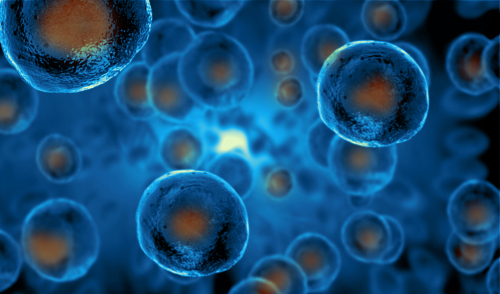Preclinical Work by Sigilon Supports Cell Therapies as Durable Way of Treating Bleeding Disorders
Written by |

Cell therapies may be a feasible way of achieving a long-term correction of bleeding disorders, preclinical data shared by Sigilon Therapeutics show. A single implant of Sigilon’s engineered cells given to mice enabled durable production of therapeutic levels of blood clotting factors and normalized bleeding time.
The technology uses the company’s Shielded Living Therapeutics, a platform of engineered cells covered with biomaterials to optimize delivery and long-term stability of cell therapies in the body.
Sigilon plans to initiate clinical studies in patients with hemophilia A, possibly in early 2020. It is currently completing work needed to qualify SIG-001, its investigative therapy for hemophilia A, to support an Investigational New Drug (IND) application.
The preclinical data was shared by Sigilon’s chief technology officer, David Peritt, PhD, at the International Society on Thrombosis and Haemostasis (ISTH) 2019 Congress, which took place in July in Melbourne, Australia. His oral presentation was titled “Correcting Bleeding Disorders Using Blood Clotting Factors Produced In Vivo By Shielded Engineered Allogeneic Cells”.
Replacement therapy for bleeding disorders requires frequent infusions of clotting factor concentrates, and can fail to address long‐term complications due to low treatment adherence or the generation of inhibitors. Alternative approaches such as gene and cell therapies are being investigated.
In their study, researchers sought to evaluate a new way of delivering cell therapy. They wanted to test whether delivery of blood clotting factors by implantation of engineered human cells that produce the missing factors is dose-adjustable, durable, and has potential to yield better clinical outcomes than infusions.
The engineered cells were protected by spheres made of Afibromer, a biomaterials matrix that shields cells from immune rejection and attack, so as to enable a sustained therapeutic effect, Sigilon said in a press release.
Various doses of engineered cell containing spheres were implanted by a single injection into the body (intraperitoneally, IP) of wild‐type mice and mouse models of bleeding disorders.
Researchers tested cells producing human factor VIII (hFVIII), human factor IX (hFIX) or human factor VII (hFVII), respectively, in mouse models of hemophilia A, hemophilia B and factor VII deficiency, a rare clotting factor deficiency.
A single implant resulted in a steady production of therapeutic levels of blood clotting factors in plasma. Additional studies in a mouse model of hemophilia A demonstrated a dose-dependent production of hFVIII, which resulted in the correction of bleeding time and blood loss.
Of note, the hFVIII-producing cells were able to remain viable and sustain long‐term production of the factor, for over six months or longer.
“These data demonstrate that we have effectively optimized our Shielded Living Therapeutics platform to deliver sustained, functional protein production after a single administration,” David Moller, MD, Sigilon’s chief scientific officer said in the release.
“The sustained secretion achieved after a single IP implantation creates a viable alternative to traditional factor delivery or gene therapy with several important advantages,” researchers said in the presentation’s abstract.
“By shielding the cells from fibrosis and immune rejection, we believe we can deliver a durable therapy that will liberate patients from the burden of frequent infusions and the peaks and troughs of factor production that accompany standard factor replacement therapy. We’re excited to take the next step in advancing these programs,” Moller added.


